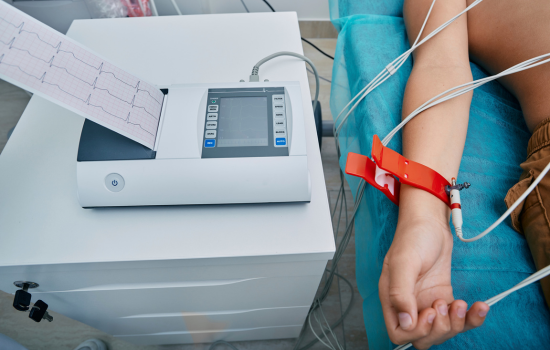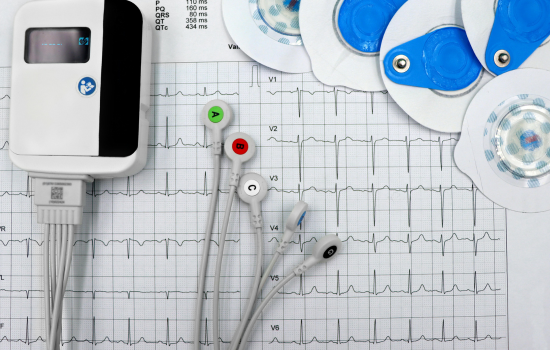What is an ECG?
An ECG (Electrocardiogram) is a quick, safe, and painless diagnostic test that measures the electrical activity of your heart through electrodes placed on your skin. It helps doctors assess how well your heart is functioning by tracking the timing and strength of the electrical signals that make your heart beat. ECGs are essential for detecting abnormal heart rhythms (arrhythmias), heart attacks, structural issues, and other cardiac conditions.


Why is ECG Done?
- To evaluate chest pain, shortness of breath, or heart palpitations.
- To check for arrhythmias (abnormal heart rhythms).
- To detect heart attacks (past or ongoing).
- To monitor heart health in high blood pressure, diabetes, or cardiac conditions.
- Before surgery or as part of a routine checkup.
Benefits of ECG:
- ECG can reveal issues like arrhythmias, heart blockages, and previous heart attacks before symptoms become severe.
- It’s a simple, painless test that takes just a few minutes, with no recovery time needed.
- Helps track heart conditions and the effectiveness of ongoing treatments or medications.
- Often used as part of a routine checkup before surgeries to ensure the heart is functioning well.
- ECGs can help identify issues like low potassium or high calcium levels that affect heart rhythm.

